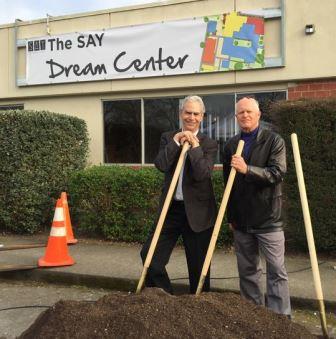by Melissa Irish, PRG Managing Associate
I recently read a staggering statistic citing that losing an employee costs 90 to 200 percent of their salary, benefits and expenses, according to the Society for Human Resource Management and the Center for American Progress. They went on to say that for top fundraisers, such as major gifts officer, the cost is likely much higher.
An article in The Chronicle of Philanthropy tried to quantify this further and introduced the concept of the “Net Fundraiser Value.” To find this value, tally the amount raised during a fundraiser’s tenure, deduct their total compensation for one year, then divide by that same number — the total compensation for one year. This gives each fundraiser a score.
For example, a gift officer who raised an average of $780,000 — based on fundraising results over several years — with an estimated cost (including salary, benefits and budgetary expenses) of $120,000 will receive a score of 5.5. In other words, they are worth at least 5.5 times their overall cost.
I appreciate these attempts to make the economic argument for investing the time and money to attract – and more importantly retain – quality employees in fundraising. I believe there are still uncalculated costs of losing staff due to the loss of relationships with key supporters, as well. All of this points to the fact that it is very much worth time for nonprofit management to create a rewarding and attractive place for their fundraising staff.
So, in this post-pandemic world from which we are slowly emerging, how do we do this? Like high gas prices, a tight labor market in fundraising is nothing new, but it’s reached crisis proportions. PRG suggests a few strategies:
- Know what is important to the people you are trying to hire and retain. Take the time to understand their currency. Is it opportunity, diversity, money, flexibility, recognition, growth? How do you find this out? Talk to them and ask! If you do lose an employee, take the exit interview seriously and learn from your mistakes.
- DEIB is #1 (Diversity, Equity, Inclusion, Belonging). Nonprofits by their nature attract folks with strong ideals who want to work in a diverse and inclusive environment. Is your organization living these values? If not, people will walk.
- Right now, the name of the game is flexibility. Find a way to be flexible about work hours and locations. Employees everywhere now see this as the norm.
- Work – life balance is more important than ever to employees now that the pandemic has shown them how fleeting life can be. (We see the same motivation leading donors to become much more receptive and eager to make planned gifts and leave their legacy.) Consider what you can outsource to lighten the load of often over-burdened development staff and, in the long run, actually save costs. Firms like PRG can offer grant writing, prospect research, campaign management and new staff mentoring.
- Research affirms that salary is still a leading criteria for taking or staying on the job. Other important factors in employees’ decisions are promotion and growth opportunities, supportive, competent management and workplace flexibility. Create a “whole” package that is appealing.
- Sweeten the deal with great benefits (this could especially appeal to younger families), a signing bonus, shorter work weeks and cross-collaboration with other departments to create more learning opportunities – which has the added perk of breaking down the silo of fundraising.
This is a big menu. Find out what is important to each individual. Gone are the days when employees need to pretend “everything is okay” at work and that their feelings are irrelevant. Today’s world presents too many stressors that affect us all, and it’s only natural that this will affect people at work. Create a safe place for your employees to talk about it. It will make them more productive and satisfied.
Brene Brown put it well in her must-read book Dare to Lead, “Daring leaders must care for and be connected to the people they lead.”
In this tumultuous labor market, PRG has found that, as consultants, we can help our longtime clients by holding the institutional memory that leaves with each turnover. We can provide interim support during critical times and offer mentoring and advice to help relieve stressed-out staff and executives.
As always, we are honored to work with and be by your side as you advance the critical and inspiring missions you serve. Thank you.
Want more ways to help with employee retention? Victoria Silverman, Managing Founder and CEO of Cook Silverman Search shared her tips for retaining staff.


